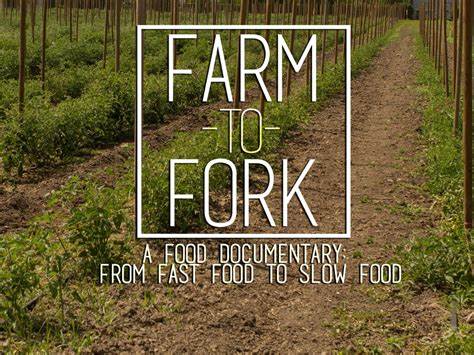
The modern food system is a complex web of production, distribution, and consumption that stretches from farms to our dinner plates. In recent years, there has been a significant shift towards sustainability in the food movement. This article explores the concept of “From Farm to Fork” and how the sustainable food movement is impacting not only the environment but also our health.
The Sustainable Food Movement: A Growing Revolution
The sustainable food movement, often referred to as “From Farm to Fork” or “Farm to Table,” is a growing revolution that aims to create a more environmentally friendly and health-conscious food system. This movement recognizes the intricate relationship between our food choices and the health of our planet. Its core principles include:
- Local Sourcing: One of the fundamental aspects of sustainable food is sourcing food locally. Buying locally grown and produced food reduces the carbon footprint associated with long-distance transportation and supports local farmers and communities.
- Seasonal Eating: Eating seasonally means consuming fruits and vegetables when they are naturally harvested in your region. Seasonal eating not only supports local agriculture but also ensures that you’re getting the freshest, most nutrient-dense produce.
- Reduced Food Waste: The sustainable food movement places a strong emphasis on minimizing food waste. This includes using food efficiently, composting, and finding creative ways to repurpose food scraps.
- Ethical Animal Farming: Sustainable eating encourages the consumption of humanely raised and ethically sourced animal products. This involves supporting farms that prioritize the well-being of their animals and practice responsible animal husbandry.
- Plant-Based Eating: Reducing meat consumption and incorporating more plant-based foods into the diet is a key component of sustainable eating. The livestock industry has a substantial environmental footprint, and plant-based diets can help mitigate this impact.
The Impact on Our Health
The sustainable food movement is not just about saving the planet; it also has profound implications for our health:
- Nutrient-Rich Foods: Locally sourced, seasonal produce is often fresher and more nutrient-rich than items that have been transported over long distances. Nutrient-dense foods are essential for overall health, providing vital vitamins, minerals, and antioxidants.
- Reduced Exposure to Chemicals: Many sustainable farming practices prioritize organic and pesticide-free cultivation. Choosing organic and sustainably grown foods reduces our exposure to harmful chemicals and pesticides, which have been linked to various health issues, including cancers and neurological disorders.

- Balanced and Varied Diet: Embracing a diet based on local and seasonal foods encourages a more diverse and balanced diet. Different fruits and vegetables come into season at different times, promoting a varied intake of essential nutrients.
- Supporting Mental Health: Knowing where your food comes from and supporting local farmers can create a sense of community and connection. This social aspect of sustainable eating can positively impact mental well-being, fostering a feeling of belonging and purpose.
- Reduced Risk of Chronic Diseases: Plant-based diets, which are often promoted in the sustainable food movement, have been associated with a reduced risk of chronic diseases such as heart disease, diabetes, and certain types of cancer. By embracing plant-centric meals, individuals can take significant steps toward improving their long-term health outcomes.
A Call to Action: Making Sustainable Choices
As consumers, we play a crucial role in shaping the future of our food system. Making sustainable food choices not only benefits our health but also supports environmentally friendly practices. Here are some actionable steps individuals can take:
- Support Local Farmers’ Markets: Shopping at local farmers’ markets not only provides you with fresh, seasonal produce but also supports local farmers and reduces the carbon footprint associated with long transportation routes.
- Embrace Meatless Mondays: Start by incorporating one meatless day a week into your diet. Plant-based meals can be delicious, nutritious, and environmentally friendly.
- Grow Your Own Food: If space allows, consider growing your own fruits, vegetables, or herbs. Even small gardens or indoor herb pots can make a difference and provide you with a sense of accomplishment and connection to your food.
- Educate Yourself: Stay informed about where your food comes from, how it’s produced, and the impact it has on the environment. Knowledge empowers you to make conscious choices.
- Advocate for Change: Support policies and initiatives that promote sustainable farming practices, ethical animal treatment, and environmentally friendly food production. By raising awareness and advocating for change, individuals can contribute to a more sustainable and healthier food system for all.
In conclusion, the “From Farm to Fork” movement represents a paradigm shift in our approach to food. By understanding the connection between our food choices, the environment, and our health, we can make informed decisions that benefit not only ourselves but also the planet. Embracing sustainability in our dietary choices is a powerful step towards a healthier, more equitable, and sustainable future.





